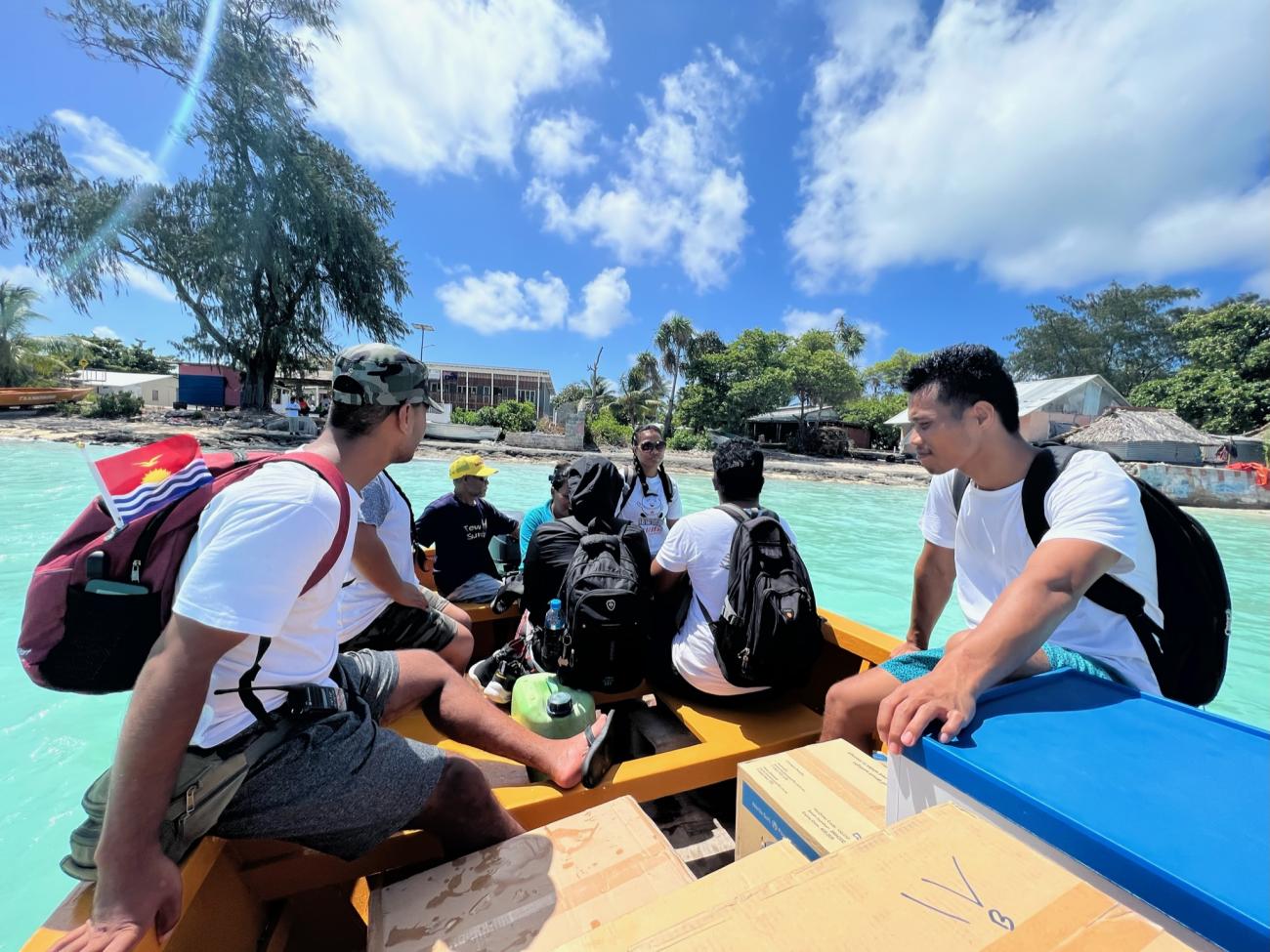Thirty two staff of the Ministry of Health and Medical Services (MHMS) in Kiribati completed a week-long training as part of an initiative to establish a national Emergency Medical Team (EMT) – the Kiribati Medical Assistance Team (KIRIMAT) – under a partnership with the Government of the Republic of Kiribati, the World Health Organization (WHO) and the United States Agency for International Development (USAID).
KIRIMAT is composed of health professionals including doctors, nurses, laboratory technicians, pharmacists, environmental health specialists and health information professionals trained to respond rapidly to sudden-onset emergencies or outbreaks in the nation of approximately 118,000 people spread across 32 atolls and one raised island covering an ocean territory of over 3.5 million square kilometres of ocean.
Dr Tekeua Kabiri, Director of Health Services Ministry of Health and Medical Services in Kiribati, highlighted the importance of this inaugural five-day EMT training for the country: “In the Pacific, we are coping with COVID-19 and worsening disasters due to climate change, such as the current drought here in Kiribati, as well as other infectious disease outbreaks. Kiribati is not only a small island state, we are also a large-ocean nation, and while we have staff on every island, we need to be able to rapidly increase support on the ground in the event of a disaster or outbreak. With the development of KIRIMAT, we now have a trained deployable team of staff from the Ministry who can respond immediately to provide high-quality medical assistance to protect our people and save lives.”
“Our local first responders have never been more essential, especially as the effects of COVID-19 and climate change continue across the Pacific,” said Her Excellency Marie Damour, Ambassador of the United States of America to the Republic of Kiribati. "KIRIMAT demonstrates the importance of establishing national Emergency Medical Teams. EMTs improve the timeliness and quality of health services, especially in times of crisis. The United States, through USAID, supports this model throughout the Pacific.”
WHO’s support for KIRIMAT includes training, ongoing technical support, as well as the procurement of equipment and supplies to facilitate future deployments – including medical supplies, satellite communication equipment, and team self-sufficiency equipment such as camping, power and water filtration equipment. With these materials, known as a “cache,” KIRIMAT will be fully self-sufficient, and ready to deploy within hours to any of Kiribati’s atolls in response to an emergency and provide high-quality medical care.
“WHO is delighted to work with the Government of the Republic Kiribati, USAID and other partners to support the establishment and training of KIRIMAT. In Kiribati, as in other Pacific island countries and areas, establishing national EMTs is a critical part of country preparedness and will enable the rapid and life-saving response to a wide range of emergencies in future,” said Dr Wendy Snowdon, WHO Country Liaison Officer in Kiribati.
KIRIMAT joins other EMTs established in the Pacific with WHO support: Cook Islands Medical Assistance Team (KukiMAT), Fiji Emergency Medical Assistance Team (FEMAT), CNMI EMT in the Northern Mariana Islands, Team KLEMAT in Palau, Samoa Emergency Medical Assistance Team (SEMAT), Solomon Islands Medical Assistance Team (SOLMAT), Tonga Emergency Medical Assistance Team (TEMAT) and Vanuatu Medical Assistance Team (VanMAT). Teams are also being established in several other Pacific island countries and areas including the Republic of the Marshall Islands, Federated States of Micronesia, Papua New Guinea and Tuvalu.
In addition to the partnership with USAID, WHO’s work to establish and enhance EMT capacity in the Pacific is also supported the Australian Department of Foreign Affairs and Trade (DFAT), the European Union, the Government of Japan, and the New Zealand Ministry of Foreign Affairs and Trade (MFAT).





